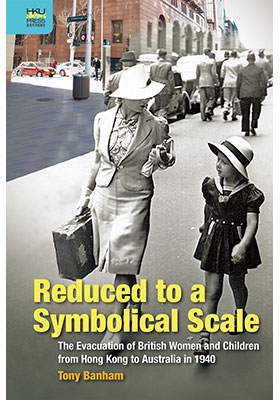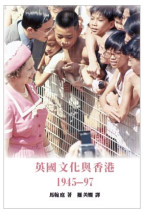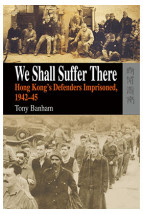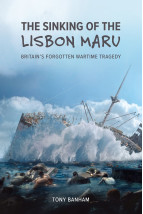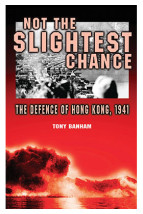Reduced to a Symbolical Scale
The Evacuation of British Women and Children from Hong Kong to Australia in 1940
(1940年居港英籍婦孺撤離赴澳洲紀事)
ISBN : 978-988-8390-87-8
August 2017
216 pages, 6″ x 9″, 24 b&w illus.; 2 tables
- HK$350.00
Ebooks
In July 1940, the wives and children of British families in Hong Kong, military and civilian, were compulsorily evacuated, following a plan created by the Hong Kong government in 1939. That plan focused exclusively on the process of evacuation itself, but issues concerning how the women and children should settle in the new country, communication with abandoned husbands, and reuniting families after the war were not considered. In practice, few would ever be addressed. When evacuation came, 3,500 people would simply be dumped in Australia.
The experience of the evacuees can be seen as a three-act drama: delivery to Australia creates tension, five years of war and uncertainty intensify it, and resolution comes as war ends. However, that drama, unlike the evacuation plan, did not develop in a vacuum but was embedded in a complex historical, political, and social environment. Based on archival research of official documents, letters and memoirs, and interviews and discussions with more than one hundred evacuees and their families, this book studies the evacuation within that entire context.
‘Reduced to a Symbolical Scale is an original and interesting addition to the evacuation literature. Tony Banham has done a masterly job of integrating archival documents with other forms of communication. The stories of individual evacuees and their families are very skilfully woven into the narrative.’ —John Welshman, Lancaster University; author of Churchill’s Children: The Evacuee Experience in Wartime Britain

